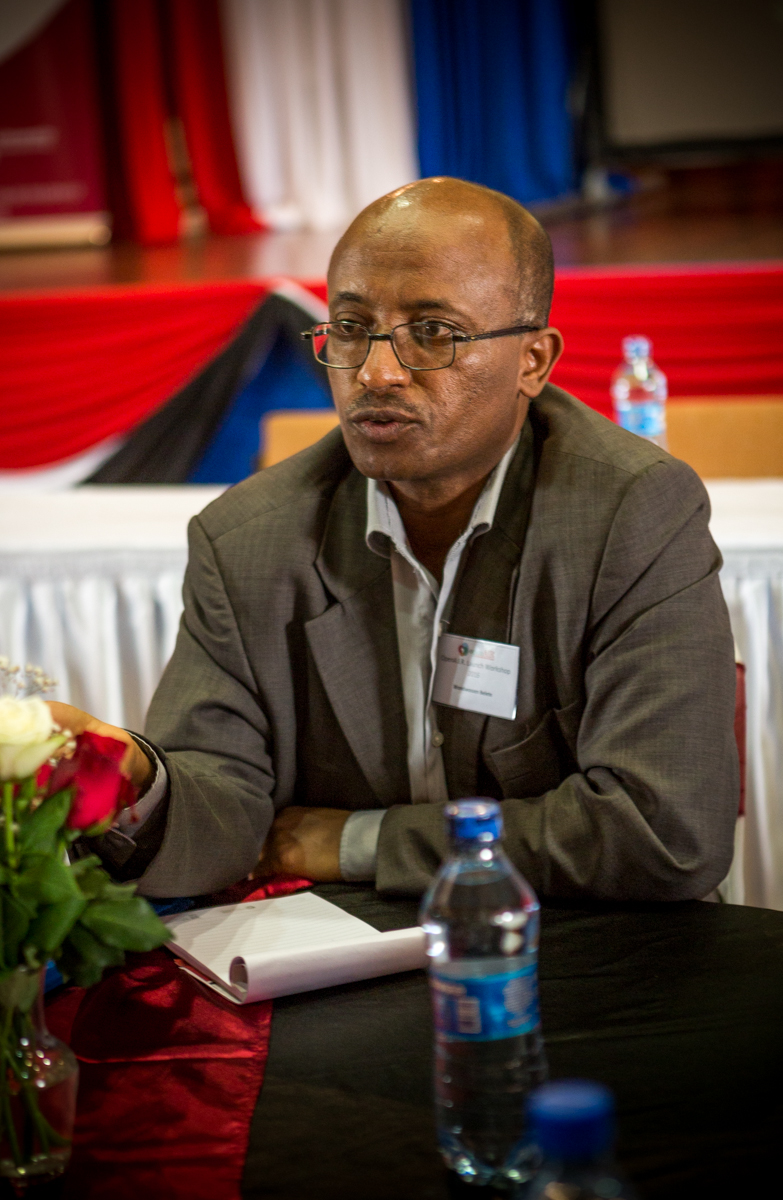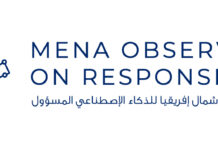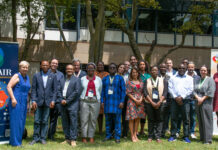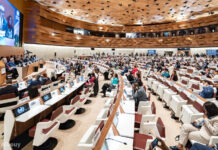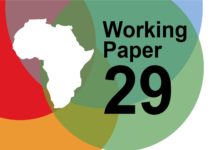By Wondwossen Belete

Late last year, I attended four events concerning science, technology, and innovation in Africa. I was honored to be a speaker in three of them. All in attendance clearly understood that Africa is very much a part of the world’s shift into the 4th Industrial Revolution, the questions being how Africa can use this to her full advantage and development, without leaving people behind. My research interests are on science and technology policy studies with emphasis on innovation systems and sustainable development. My current work focuses on digital technologies in agriculture and rural areas.
AfriLabs 2019
The first event was the 4th edition of AfriLabs Annual Gathering that took place from the 28th to 30th of October 2019, in Addis Ababa, Ethiopia. AfriLabs is a pan-African network of 174 technology innovation hubs across 45 African countries. AfriLabs was founded in 2011 to build a community around rapidly emerging tech hubs. Its mission is to support the growth of these technology hubs and their communities to raise high potential entrepreneurs that will stimulate economic growth and social development in Africa. This year’s Annual Gathering was hosted in partnership with the African Union Commission Department of Human Resources, Science and Technology. The theme of the Gathering was “Connect: Towards an Integrated Innovation Ecosystem” and had in attendance over 300 delegates from across the continent and the diaspora.

The aim was to connect all players of the African innovation and entrepreneurship ecosystem, which includes hubs, innovators, entrepreneurs, researchers, academia, venture capitalists, media, development agencies, and investors. It also included training and legal consultants, business/professional development experts, creatives, and the diaspora, all with the goal to create synergies that will pave the way for the African innovation ecosystem to thrive, helping the development of the African continent.
Each session and dialogue was tailored toward building strong systems, increasing institutional capacity and sharing technology- and people-driven frameworks to foster collaboration between stakeholders by increasing investment, research, creativity, skills and other forms of support for innovation and entrepreneurship to thrive in Africa.
I came away from the conference with some useful ideas about the importance of tech hubs and their roles in the innovation ecosystem. I had the opportunity to get to know some of the participants on a personal level and got some information about their activities and the kinds of support they provide to start ups in their respective countries.
African Technology Policy Studies Network (ATPS) Annual Conference
After attending the AfriLabs meeting, I left for Nairobi, Kenya to attend the annual conference of African Technology Policy Studies Network (ATPS). This event, which also marked the silver jubilee of ATPS, took place 30-31 October 2019.
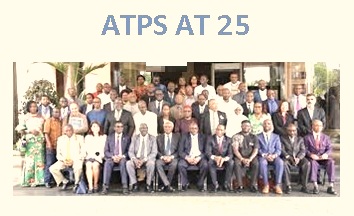
The theme of the ATPS annual conference was using science, technology, and innovation (STI) as a means for achieving the Sustainable Development Goals (SDGs) in Africa. The overall purpose of the conference was to critically examine the current conditions, barriers and opportunities in the following five areas and provide policy options for transitions to more inclusive sustainable development in Africa:
- Science, technology, and innovation priorities for Africa’s development
- The fourth industrial revolution and Africa’s readiness
- Improving Africa’s intra-Africa trade using science, technology, and innovation
- Funding science, technology, and innovation priorities for Africa’s development
- Gender and inclusivity in science, technology, and innovation
The conference provided an opportunity for networking among STI stakeholders across the continent and beyond. It was attended by members of ATPS from different African and European countries, including government officials, representatives of the African Union Commission, African Academy of Sciences, African Economic Research Consortium, African Export-Import Bank, Swedish Environment Institute, and non-governmental organizations.
Presentations were made, including my own. I made a case for intervention on funding science, technology, and innovation priorities for Africa’s development. I emphasized the importance of strong financial systems to meet the funding needs of private firms, particularly small-and medium-sized enterprises (SMEs). I also noted the challenges that innovative SMEs face and identified some policy options and instruments for financing their innovative activities.
WIPO workshop on Partnership for Innovation and Technological Capacity Building
The next week, I went to the World Intellectual Property Organization (WIPO) for a two day workshop on Partnership for Innovation and Technological Capacity Building for the Least Developed Countries of Africa (LDCs-Africa), organized in cooperation with United Nations Economic Commission for Africa (UNECA) and Addis Ababa University. The workshop, which took place 4-5 November 2019 in Addis Ababa, was attended by senior government officials, researchers, academia and technology transfer officers from different African LDCs. The objective of the workshop was to build project-based technical and institutional expertise in the areas of innovation and technology for the benefit of African LDCs. In addition, the workshop was intended to provide a platform for discussions among the participants on formulation and implementation of projects as well as to enable interactions with WIPO through a dedicated online platform.
I presented two papers at the workshop. The first focused on the role of institutions in promoting innovation and technological capacity building in Africa. My second paper addressed the policy and strategic framework for innovation and creativity in STI organizations. In both, I stressed the need for strong STI systems in African LDCs and the importance of giving adequate attention to allocation of resources for R&D, development of human resources for S&T, innovation infrastructure, and regulatory frameworks for innovation. The workshop offered me an opportunity to build relationships with participants from different STI organizations in Ethiopia and other African countries. I also had the chance to discuss with WIPO officials about potential STI projects in Ethiopian universities.
UNECA Consultative Meeting on STI Policy Design and Implementation
Finally, at the end of November, I attended the UNECA regional consultative meeting on STI Policy Design and Implementation, also held in Addis Ababa. The main objective of this meeting was to assess the current state of STI policy making in Africa and determine the types of questions that policy makers and advisers should raise during discussions about STI policy design and implementation. The consultation identified the main issues as being related to identifying the problem(s), defining and setting policy targets, adapting to a changing world, determining the key relationships for success, the political support base for policies, and managing of the implementation process. The discussions were built on existing and ongoing research by UNECA and the advanced work of the UN Interagency Task Team on STI (IATT) for the Sustainable Development Goals.
I was invited as a panelist in the session on STI problem diagnosis. The session focused on generating ideas that could serve as guidelines to help African countries diagnose the right problems or gaps, as well as opportunities to achieve high levels of future growth, often building on previous successes. In my presentation, I noted that STI policies should be defined by assessing the specific needs and individual problems of each country by looking at the institutional, cultural, and historical factors. I also brought to the attention of the participants that the dominant discourse unfortunately neglects informal sector innovation in STI policies. I hope I made it clear to attendees that this is an area that needs to be addressed with explicit attention in the policy making process; the informal sector is highly innovative, as I and other Open AIR researchers – among others – have clearly demonstrated. It is time that the informal sector be equally considered in policies designed to encourage and support innovation.

